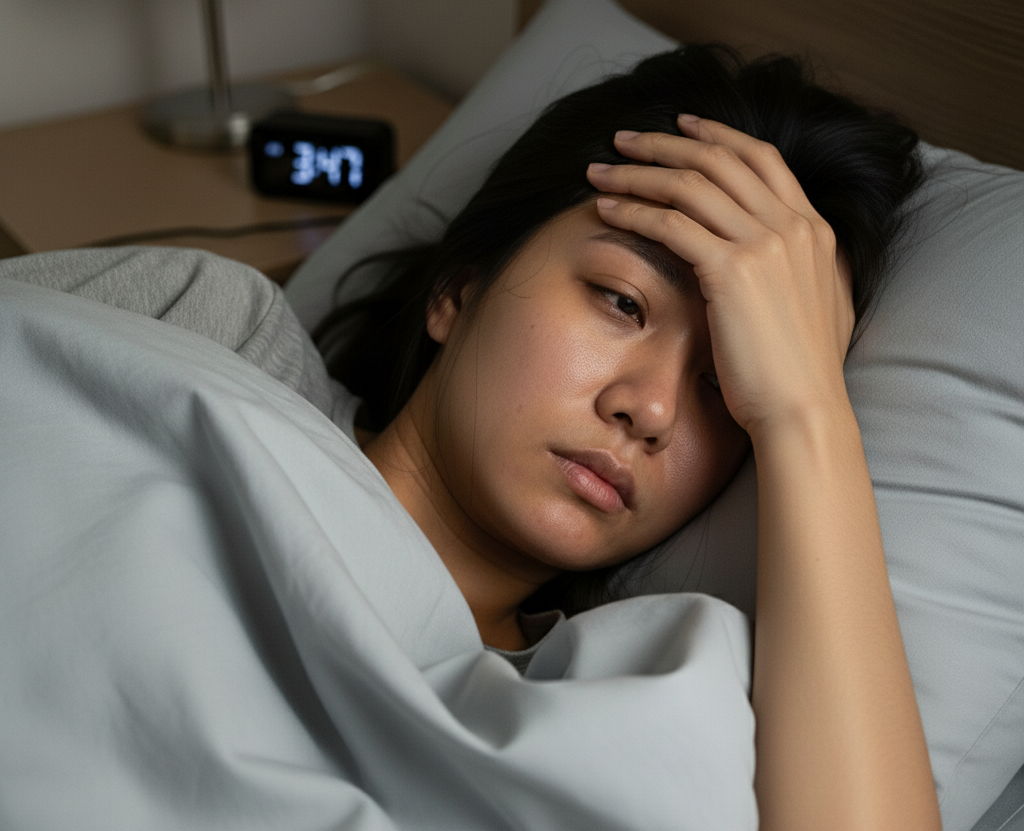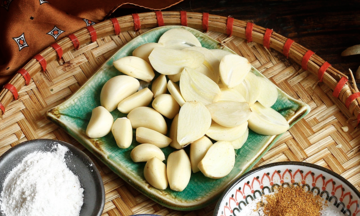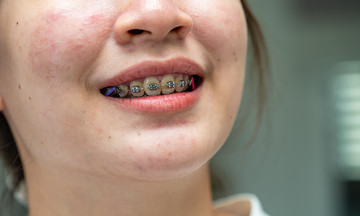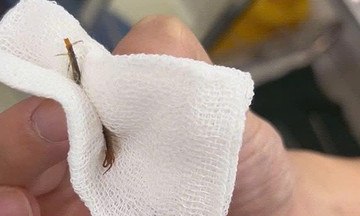Pharmacist Do Xuan Hoa of the Medical Information Center at Tam Anh General Hospital in Ho Chi Minh City, explains that skin health is significantly influenced by circadian rhythms. The period from 11 PM to 4 AM is the crucial time for skin repair and regeneration. Sleep deprivation can interrupt this process, hindering skin recovery.
Dull, lifeless skin: Reduced blood flow beneath the skin disrupts the delivery of oxygen and nutrients to skin cells, resulting in a dull, lifeless complexion. Prolonged poor circulation also leads to dark circles, noticeable eye bags, and uneven skin tone, especially in thinner areas like around the eyes and cheekbones.
 |
Prolonged sleep deprivation accelerates skin aging. Image generated by AI |
Accelerated skin aging: During sleep, the body repairs and regenerates cells, including skin cells. Insufficient sleep disrupts this natural repair process, potentially accelerating skin aging and leading to wrinkles, fine lines, and sagging skin. Using electronic devices before bed exposes skin to blue light, further promoting aging, collagen loss, and skin darkening.
Weakened skin barrier: Sleep deprivation increases cortisol levels, a hormone that causes inflammation and breaks down collagen, leading to premature aging and reduced skin elasticity. Over time, sleep loss also hinders cell regeneration, making skin more prone to damage and dryness, and impairing its ability to retain moisture.
Increased risk of skin diseases: Chronic sleep deprivation increases the risk of acne, eczema, and psoriasis. Insufficient sleep can elevate inflammation throughout the body and disrupt the skin's natural balance, contributing to the development or worsening of these conditions.
To maintain healthy skin, Hoa recommends prioritizing quality sleep. Before bed, engage in relaxing activities like reading or taking a warm bath. Avoid electronic devices, and create a quiet, cool sleeping environment. Limit caffeine and alcohol intake in the evening to prevent restlessness and nighttime awakenings. Regular exercise and stress management techniques like meditation or deep breathing are also beneficial.
Regularly supplementing with natural extracts like collagen peptide, sakura (cherry blossom extract), p.leucotomos (from ferns), pomegranate, and grade seed (from grape seeds) can stimulate collagen production, maintaining skin firmness and radiance. Individuals experiencing chronic insomnia should consult a neurologist for diagnosis and treatment.
Dinh Dieu
| Readers can submit questions about dermatology and skin aesthetics here for doctors to answer. |












